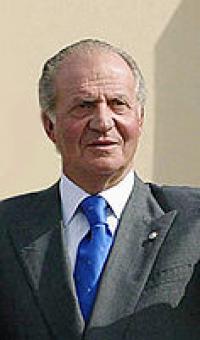|
|
|
The Monarchy of Spain, constitutionally referred to as The Crown and commonly referred to as the Spanish monarchy or (historically) Hispanic Monarchy, is a constitutional institution and an historic office of Spain. The monarchy comprises a reigning King or Queen of Spain, their family, and the royal household organization which supports and facilitates the monarch in the exercise of his royal duties and prerogatives. The monarchy is currently represented by King Juan Carlos I, his wife Queen Sofia, and their children and grandchildren. Opinion polls routinely reveal that the monarchy remains popular by a wide majority of citizens in contemporary Spain, with as many as 75% of Spanish citizens ranking the monarchy above any other public institution in the country. In 2010, the budget for the Spanish monarchy was 7.4 million euros, one of the lowest public expenditures for the institution of monarchy in Europe. The Spanish Constitution of 1978 reestablished a constitutional monarchy as the form of government for Spain. The 1978 constitution affirmed the role of the King of Spain as the personification and embodiment of the Spanish State and a symbol of Spain's enduring unity and permanence. Constitutionally, the king serves as the head-of-state and commander-in-chief of the Spanish Armed Forces. The constitution codifies the use of royal styles and titulary, royal prerogatives, hereditary succession to the crown, compensation, and a regency-guardianship contingency in cases of the monarch's minority or incapacitation. According to the constitution, the monarch is also instrumental in promoting Ibero-American relations, the "nations of its historical community". In this capacity, the King of Spain serves as the president of the Ibero-American States Organization, representing over 700,000,000 people in twenty-four member nations worldwide. In 2008, Juan Carlos I was considered the most popular leader in all Ibero-America. The Spanish monarchy has its roots in the Visigothic Kingdom founded in Spain and Aquitainia in the 5th century, and its Christian successor states which fought the Reconquista following the Umayyad invasion of Hispania in the 8th century. A dynastic marriage between Isabella I of Castile and Ferdinand II of Aragon united Spain in the 15th century. The Spanish Empire became one of the first global powers as Queen Isabella and King Ferdinand funded Christopher Columbus's exploratory voyage across the Atlantic Ocean. This led to the rediscovery of America by Europeans, which became the focus of Spanish colonization. |




 RSS
RSS